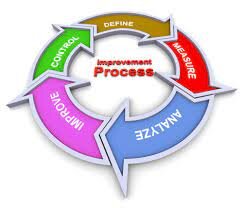
What is a “tired landlord,” and what can you do about it?
A “tired landlord” refers to owners overwhelmed by managing rental properties due to difficulties handling tenants, maintenance, repairs, and legal or financial complexities. This state often arises from unsuitable ownership or poor management approach. However, solutions exist to alleviate this condition. Check out this article about Tired Landlords for more information.

Recognizing the signs of a “tired landlord.”
- Constant stress and anxiety: As a “tired landlord,” you may constantly worry about tenant issues, property maintenance, and financial obligations, leading to chronic stress and anxiety.
- Lack of personal time: Managing rental properties can be a demanding job that requires time and attention around the clock, leaving you with little or no personal time for yourself or your loved ones.
- Difficulty attracting and retaining good tenants: It can be emotionally and financially draining if you’re constantly dealing with problematic tenants. A “tired landlord” often faces challenges attracting and retaining reliable, responsible tenants.
- Maintenance and repair overload: As a landlord, you’re responsible for ensuring that your properties are well-maintained and addressing repair requests promptly. However, when maintenance issues pile up, handling them can become overwhelming and exhausting.
- Legal and regulatory complexities: The rental market is governed by various laws and regulations that landlords must adhere to. Staying updated and compliant can be time-consuming and mentally exhausting for a “tired landlord.”
- Financial strain: Managing rental properties involves dealing with financial aspects such as collecting rent, paying mortgages, taxes, and other expenses. It contributes to your exhaustion as a landlord if you struggle to make ends meet or face constant financial pressures.

Solutions for a “tired landlord.”
- Delegate tasks: One effective way to alleviate the burden of being a “tired landlord” is to delegate tasks. Consider hiring a property management company or outsourcing specific responsibilities, such as tenant screening, rent collection, and property maintenance. This allows you to free up time, focus on other aspects of your life, or invest in additional properties.
- Improve tenant screening: Avoid future headaches by implementing a thorough tenant screening process. This includes conducting background checks, verifying income and employment, and contacting references. By selecting responsible and reliable tenants, you can reduce the likelihood of problematic situations.
- Automate rent collection: Use online platforms or software tools to automate the rent collection process. This eliminates the need for manual collection and reduces the risk of late or missed payments. Automating rent collection streamlines your financial management, saving time and reducing stress.
- Outsource maintenance and repairs: Instead of personally handling all maintenance and repair requests, consider working with trusted contractors or maintenance companies. They can care for routine repairs and emergencies, allowing you to focus on other essential aspects of being a landlord.
- Stay informed and educated: Keep yourself updated on the latest laws, regulations, and best practices related to rental property management. Attend workshops, join landlord associations, or subscribe to industry publications to enhance your knowledge and ensure compliance. This proactive approach can help you avoid legal complications and reduce stress.
- Consider professional assistance: If you’re feeling overwhelmed and struggling to manage your rental properties effectively, seeking professional assistance from real estate attorneys, accountants, or property management consultants can provide valuable guidance and support.
- Sell the property: This is the last resort because you purchased the investment property to accomplish certain goals. There are many ways to sell your investment property, and here are just a few ways to do just that.
- Traditional Sale via a Realtor
- For Sale By Owner (FSBO)
- Online Real Estate Marketplaces such as Zillow
- Sell to a Family Member or Friend
- We are here for you if you need HELP with any of this.

FAQs about Being a Tired Landlord
1. What should I do if I have difficult tenants? If you’re dealing with difficult tenants, addressing the issue promptly and professionally is important. Document any incidents, communicate clearly and assertively, and, if necessary, seek legal advice to understand your options for resolving the situation. Click here for a deep dive into the “Root Cause of Bad Tenants.”
2. How can I handle maintenance requests more efficiently? Creating a system for handling maintenance requests can streamline the process. Implement a dedicated communication channel for tenants to report maintenance issues, prioritize requests based on urgency, and work with reliable contractors who can provide timely service. “Keys to Managing Tenants ” is hard, so we wrote this article to answer most of your common questions.
3. Is hiring a property management company worth it? Hiring a property management company can be beneficial, especially if you feel overwhelmed as a landlord. They can handle day-to-day operations, tenant screening, rent collection, maintenance, and legal matters, providing you with peace of mind and more personal time.
4. Should I raise the rent to improve profitability? Raising the rent can be a valid strategy to improve profitability, but it should be done carefully and within legal limits. Research the local market, assess the demand for rental properties, and consider factors such as inflation and property maintenance costs before deciding.
5. Can I sell my rental property if I’m tired of being a landlord? Yes, selling your rental property is an option if you no longer wish to be a landlord. Consult with real estate professionals to understand the market value of your property and explore the potential financial implications, such as capital gains taxes and transaction costs. We’ve made this video about “how we buy houses from tired landlords,” so check it out.
6. How can I avoid tenant turnover? To reduce tenant turnover, focus on providing a positive rental experience. Respond promptly to maintenance requests, maintain open and clear communication, and address tenant concerns promptly. Offering incentives for lease renewals and creating a pleasant living environment can also help retain good tenants.

Conclusion
Being a “tired landlord” can be mentally, emotionally, and physically draining. However, by recognizing the signs, implementing practical solutions, and seeking professional assistance when needed, you can regain control and find renewed enjoyment in your role as a landlord. Remember, managing rental properties doesn’t have to consume your life entirely. Take proactive steps to prioritize your well-being, achieve a healthy work-life balance, and ultimately succeed as a landlord.

Local Honest Homebuyer
And here is an offer that is hard to refuse; reach out to us, and we’ll help you. We are local real estate buyers, and we can answer your questions. Check out our Google reviews, LOCAL HONEST HOMEBUYER GOOGLE
